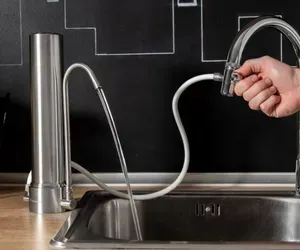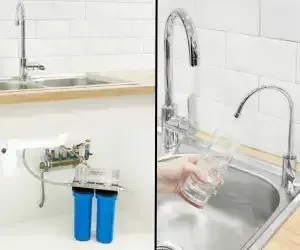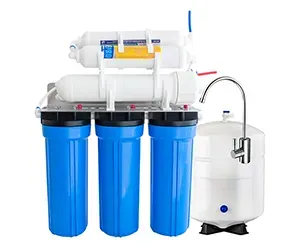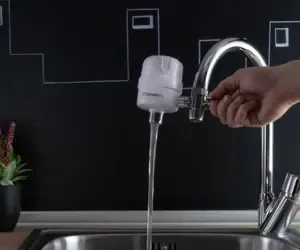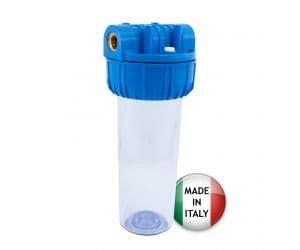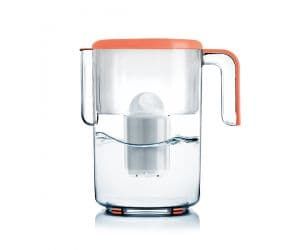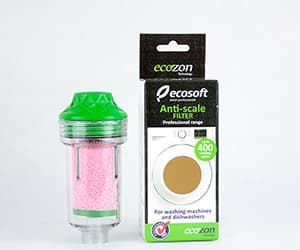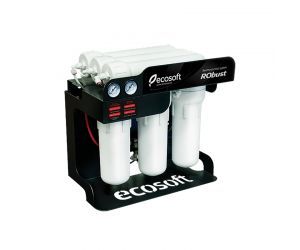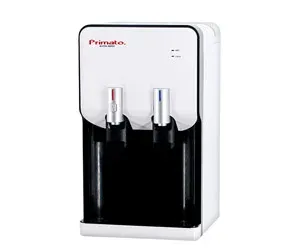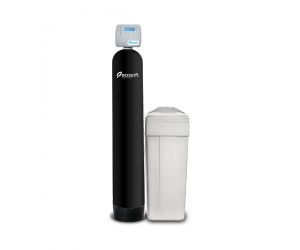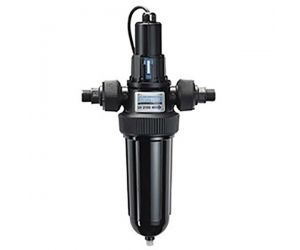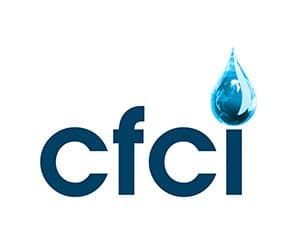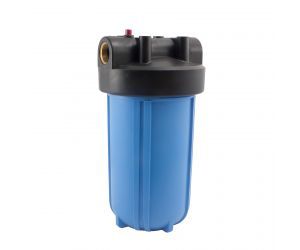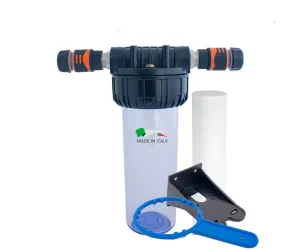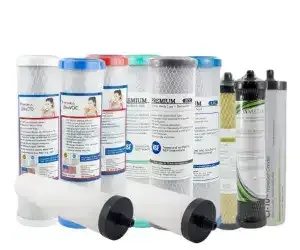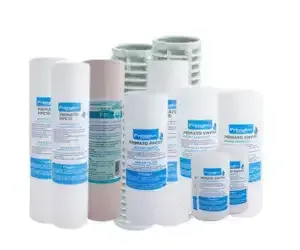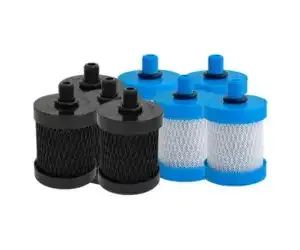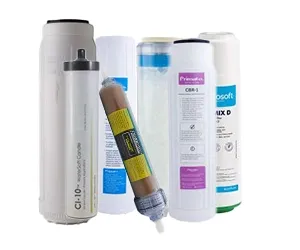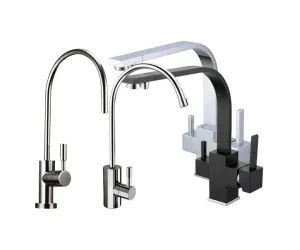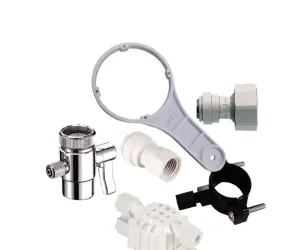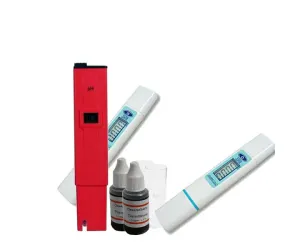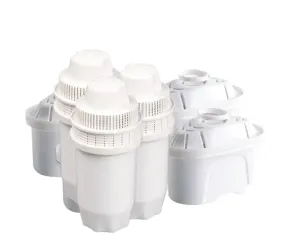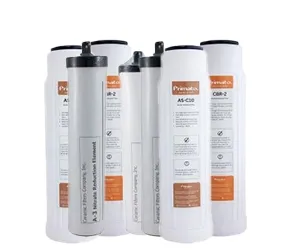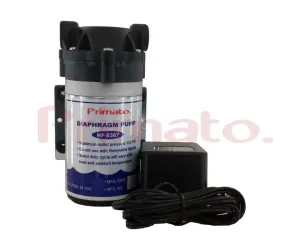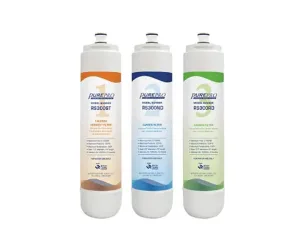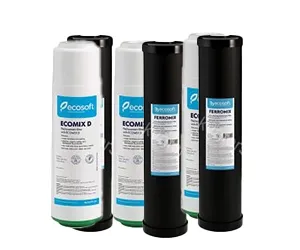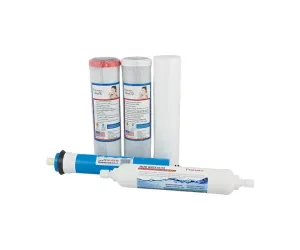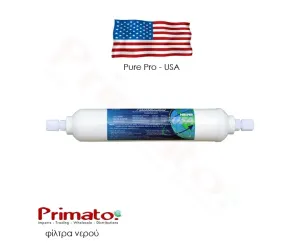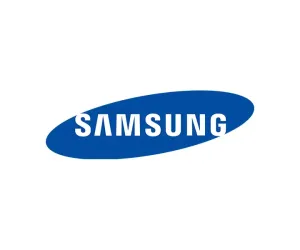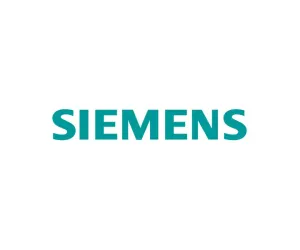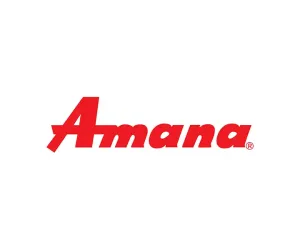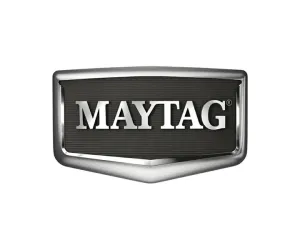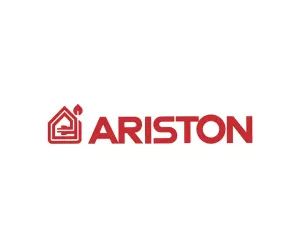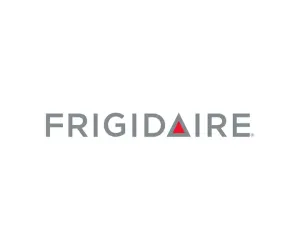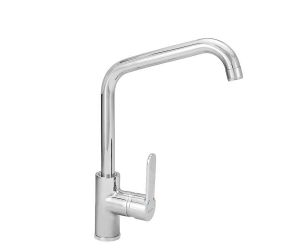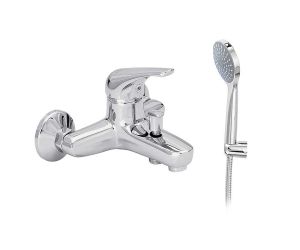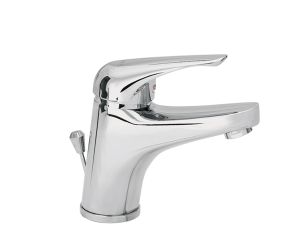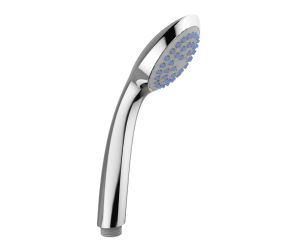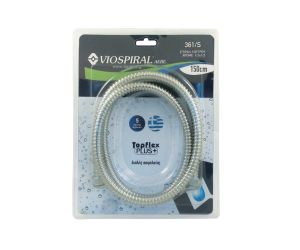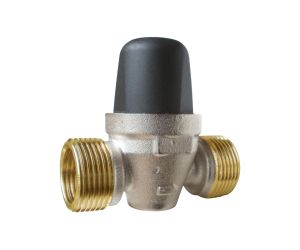Zeolite: A natural mineral in the service of water filtration
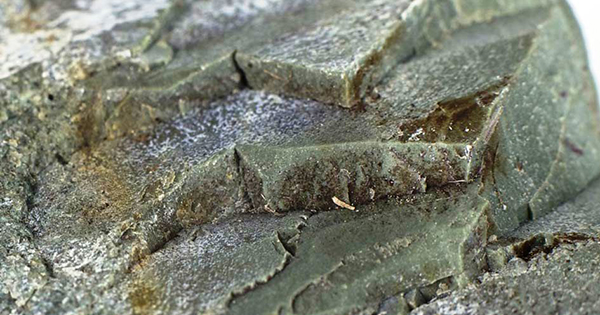
Over the past 50 years, advances in granular filter media water filtration have been achieved by using smaller mesh size sand combined with garnet or garnet/anthracite (multimedia) to achieve a nominal 12 to 15µ rating and to improve bed design and fluidics.
Nowadays, high purity zeolite media which achieves a <5µ nominal rating is available. Mineralogically, there are about 40 known types of natural zeolites (hydrated silicates) of which clinoptilolite is the most common. Clinoptilolite is classified as a crystalline, aluminum, silicon, oxide mineral that has a high porosity, high surface area, a micro-crystal structure, and is abrasion resistant.
Lab data indicates that zeolite outperforms conventional filtration media, including sand and anthracite, in its filtration and absorption capabilities. This is attributed to zeolite’s surface area, which is seven or eight times larger than many other granular materials.
Origin and Properties
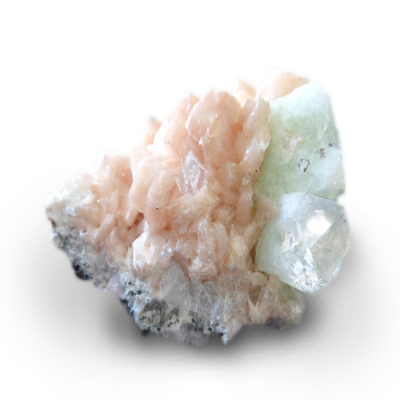
The term zeolite was originally coined in 1756 by Swedish mineralogist Axel Fredrik Cronstedt, who observed that rapidly heating the material, believed to have been stilbite, produced large amounts of steam from water that had been adsorbed by the material. Based on this, he called the material zeolite, from the Greek ζέω (zéō), meaning "to boil" and λίθος (líthos), meaning "stone".
Zeolites are solids with a relatively open, three-dimensional crystal structure built from the elements aluminum, oxygen, and silicon, with alkali or alkaline-Earth metals (such as sodium, potassium, and magnesium) plus water molecules trapped in the gaps between them.
The most interesting thing about zeolites is their open, cage-like, "framework" structure and the way it can trap other molecules inside it. This is how water molecules and alkali or alkaline-Earth metal ions (positively charged atoms with too few electrons, sometimes called cations) become a part of zeolite crystals—although they don't necessarily remain there permanently. Zeolites can exchange other positively charged ions for the metal ions originally trapped inside them (technically this is known as cation exchange) and, as Cronstedt found over 250 years ago, they can gain or lose their water molecules very easily too (this is called reversible dehydration). Zeolites have regular openings in them of fixed size, which let small molecules pass straight through but trap larger ones; that's why they're sometimes referred to as molecular sieves. Unlike natural zeolites, which occur in random forms and mixed sizes, synthetic zeolites are manufactured in very precise and uniform sizes (typically from about 1μm to 1mm) to suit a particular application; in other words, they're made a certain size to trap molecules of a certain (smaller) size inside them.
Natural zeolite can be modified by single or combined treatment such as heating and chemical modification (acids, bases and inorganic salts). Chemical and thermal treatment of zeolite may result in cation migration and thus affect the cation location and pore opening. ”Pore engineering” is a popular term for methods used in zeolite modification in which some of its sorbent properties are manipulated. The processes of ion exchange and adsorption in zeolite/solution contact occur concurrently.
Thermal treatment at high temperature, depending on the solid sample and temperature used can enhance pore volume by removing water molecules and organics from pore channels. Water present in cages and channels of the zeolite framework contributes 10 – 25 % to the total mass of zeolites. To enable efficient use of zeolites in water treatment, it is important to know the properties of dehydration and structural stability of particular zeolitic materials.
Use
 The unique ion exchange and adsorption properties, high porosity, excellent thermal stability and cage-like structure of zeolites make them very suitable for many applications. One of the biggest everyday uses for zeolites is in water softeners and water filters. In ion-exchange water softeners, for example, hard water (rich in calcium and magnesium ions) is piped through a column filled with sodium-containing zeolites. The zeolites trap the calcium and magnesium ions and release sodium ions in their place, so the water becomes softer but richer in sodium. Many everyday laundry and dishwasher detergents contain zeolites to remove calcium and magnesium and soften water so they work more effectively.
The unique ion exchange and adsorption properties, high porosity, excellent thermal stability and cage-like structure of zeolites make them very suitable for many applications. One of the biggest everyday uses for zeolites is in water softeners and water filters. In ion-exchange water softeners, for example, hard water (rich in calcium and magnesium ions) is piped through a column filled with sodium-containing zeolites. The zeolites trap the calcium and magnesium ions and release sodium ions in their place, so the water becomes softer but richer in sodium. Many everyday laundry and dishwasher detergents contain zeolites to remove calcium and magnesium and soften water so they work more effectively.
Ammonia (NH3) and heavy metal cations are often found in water sources and pose serious health and environmental risks. Studies have determined that natural clinoptilolite zeolite is selective for these cations, meaning that it will absorb and bind them in its honeycomb structure even in the presence of larger amounts of competing cations. In addition, zeolite forms strong bonds with ammonia and heavy metals that are difficult to break. This prevents leaching of contaminants into the environment.
Zeolites adsorb a number of organic substances. The mineral has the largest affinity for polar organic components, for example chlorinated hydrocarbons. Depending on the diameter of the molecules, these are either adsorbed in the micro or mesopores. The capacity of the adsorption is strongly dependent on the circumstances at which the adsorption is performed.
As zeolites are a granular material, solid and suspended particles are trapped between the grains. The porous structure also causes colloid particles from both organic and mineral origin to be removed from the water. The capacity for the removal of solid particles is up to 45% greater than the capacity of sand with an equivalent particle size distribution.
Benefits
To put it in a nutshell, the benefits of zeolite in water treatment and filtration include the following:
- Softens water by absorbing calcium (Ca) and magnesium (Mg)
- Removes chlorine (Cl) from tap water
- Removes iron (Fe) from ground water sources
- Removes contaminants like heavy metals and ammonia (NH3)
- Neutralizes slightly acidic water
- Improves water clarity
- Provides better liquid/solid separation than other filters such as alum and polymer
- High internal and external surface area which results in a high ion holding capacity
- Selective for heavy metal cations including zinc (Zn), copper (Cu), silver (Ag), lead (Pb), cobalt (Co) and nickel (Ni)
- Outperforms conventional granular media
- Highly effective at filtering and purifying water
- Cost effective
- Removes organic matter
- Abrasion resistant
- Dehydrates sludge
- Requires 50% less backwash cycles than sand
- Reduces the amount of backwash water due to a decreased number of backwash cycles
- Classified as GRAS (Generally Regarded As Safe) for humans and animals
- Non-toxic and environmentally friendly
- Does not contain chemical additives or dyes
Recent posts
- Well Water in Greece: What’s Really in It and How to Make It Safe
- NanoMetix 10" 0.01μm Water Filter | Advanced Nanofiltration Against PFAS & Microplastics
- The Future of Water: How Primato Filters are Pioneering New Standards in Water Safety
- Primato's Journey at Aquatech Amsterdam: Building Bridges and Expanding Horizons
- The Journey of Water: From Source to Tap - Understanding the Filtration Process
- What are three way water filter taps?
- Shower water filters
- Commercial water filters for hotels, restaurants and cafes
- The reason why more and more people prefer undercounter water filters
- Zeolites in water treatment
- The water supply network of Athens
- The whole truth about water filters
- Russian water filters with aragonite - Purchase guide
- Choosing and buying a countertop water filter
- I live in Athens. Do I need a water filter?
- Water Filter Prices: Full Guide
- Does filtered water help with allergies?
- 10+ reasons to add more water to your lifestyle!
- Zeolite: A natural mineral in the service of water filtration
- Thessaloniki Water: From the source to the glass
- Meet the Greek Water Filters Manufactured in Thessaloniki
- Water Filters with Zeolites
- Turning a coconut into activated carbon
- Thessaloniki: Which Are The Best Water Filters?
- Tap water in Greece: Is it safe? The problems and the solutions
- How to Choose the Right Replacement Filter
- Ultra filtration and Hollow Fiber Membranes explained
- How hard is water in Thessaloniki?
- Whole house water filter cartridges - How to choose the right one!
- Countertop water filters - What to look for before I buy
- Do I need a water filter if I live in Athens?
- Everything you need to know about tap water filters
- Under-sink water filters - Everything you need to know
- Reverse Osmosis - What is it and how it works
- World Water Day - 22 March
- Primato goes sailing!
- What is the activated carbon found in our water filters?
- What are water filters?
- Reverse Osmosis - Perfect for islands, drilling water and aquariums
- Hexavalent Chromium - A Carcinogen That Should Be Reduced Immediately!
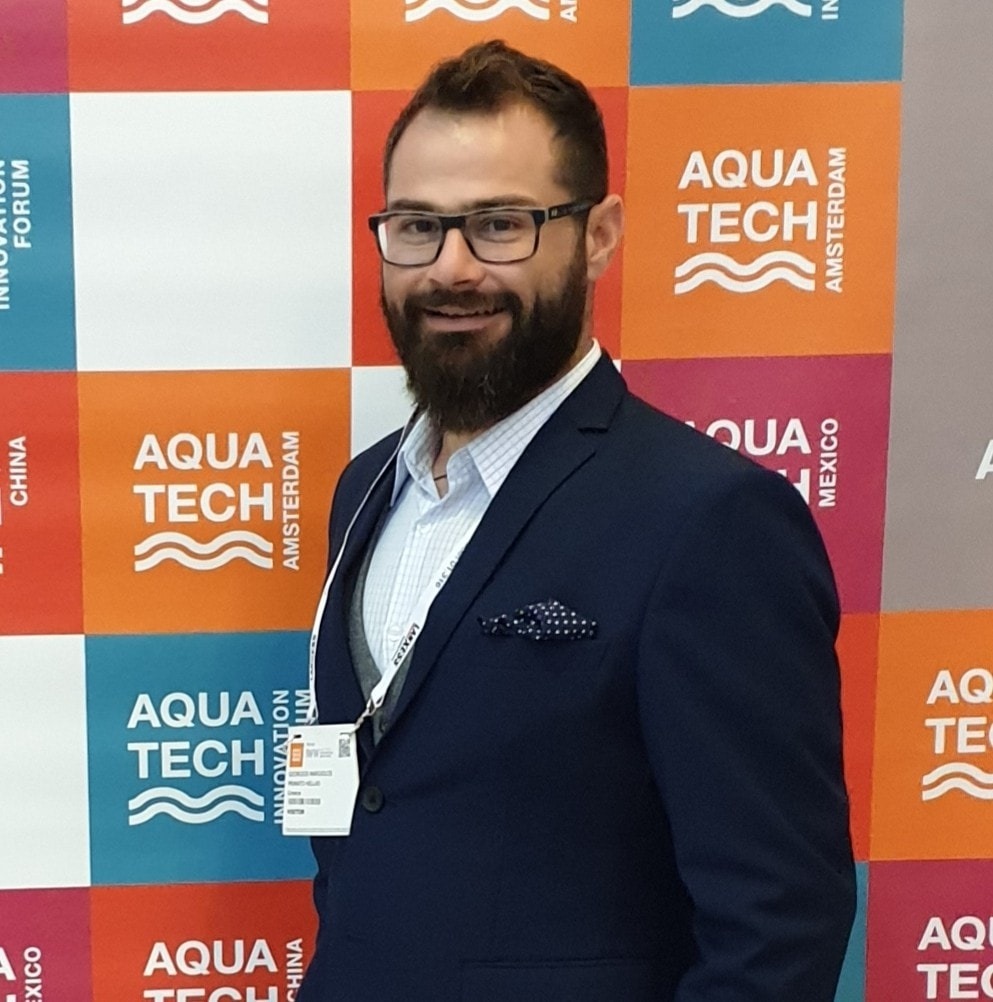
George Margiolos
George Margiolos was born in Thessaloniki and has graduated from the Department of Marketing of the Alexandreio Technological Educational Institute of Thessaloniki. He is fluent in English and (not so fluent) in German.
Ηe has been Project Manager at Avery Dennison - Fastener Division in the UK. There, his main project was to redesign the company's products into new applications so as to become more environmentally friendly. In combination with the fact that in the UK people are more familiar with water filters, he has developed a love for environmentally friendly water filters, which reduce the use of plastic bottles and improving people's quality of life.
Since 2008, he has published over 300 unique educational and informative articles on water filters and new water treatment technologies.
Occasionally, universities and doctoral students request to use George Margiolos' articles in their research because of their quality and uniqueness.
